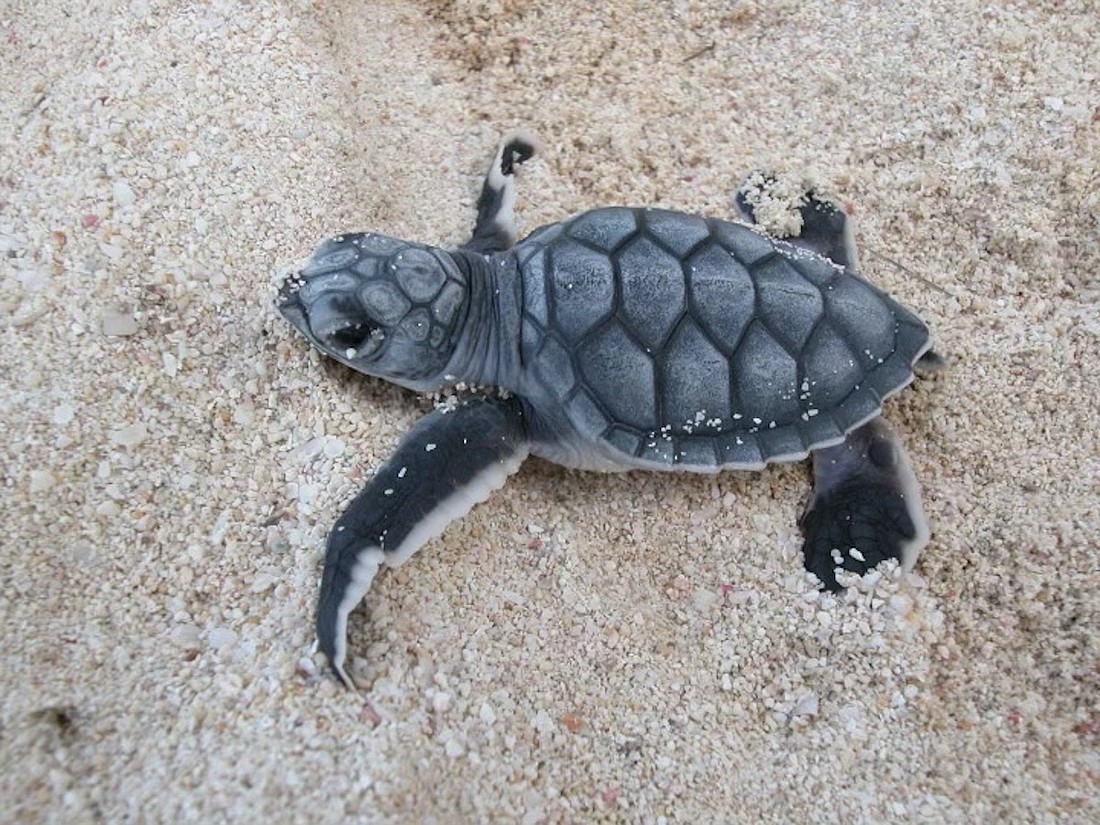- April 25, 2024
-
-
Loading

Loading

An increase in calls regarding artificial light disorientation on the beach during last year’s turtle nesting season underscores the importance of knowing the rules to protect turtles.
By August 2022, the number of calls to Mote Marine Laboratory & Aquarium relating to light disorientation had already surpassed the total number of calls received in the entire 2021 season.
Turtle nesting season kicks off May 1 and runs until Oct. 31. Whether you are a longtime resident or this is your first time visiting local beaches, it is important to to keep in mind ways you can protect local sea turtle populations.
“Whether it’s a nesting female or hatchlings, when they emerge for the first time their instincts tell them to travel towards the brightest horizon, which is supposed to be the ocean,” Sea Turtle Conservation Manager Melissa Macksey said.
When artificial light hits the beach, turtles are likely to go inland and can end up in swimming pools, roads and parking lots.
“We’re really trying to encourage people, especially after last year, to keep the beaches dark at night,” she said. “Turn off lights, pull the shades closed, shield lights to make them turtle-friendly, whatever you need to do to help keep those beaches dark.”
Mote’s Sea Turtle Conservation and Research Program staff and volunteers begin their beach patrols on April 15 in search of early nesters, since turtles don’t have a calendar to follow.
The first nest of 2023 was spotted April 18 on Casey Key. The nest marks the earliest one to have been documented in the program’s history, meaning a busy nesting season may be ahead. The nest was laid by a loggerhead sea turtle, a threatened species protected under federal law. Loggerheads are also the most common species on southwest Florida nesting beaches.
Mote Marine keeps track of nests along 35 miles of beach in Sarasota County from Longboat Key to Venice.
Longboat Key Turtle Watch is part of Mote's volunteer efforts to walk the beaches each morning in search of new nests and keep an eye on ones already documented.
No nests have been found on the Longboat’s beaches yet, but a false crawl was spotted this week. A false crawl is when a turtle emerges from the water, perhaps in search of a nest, but decides not to lay its eggs there.
The group continues to remind residents and visitors alike to flip a switch and make a move, two slogans they have adopted and continue to use to educate others.
“‘Flip a switch’ is to keep (the beach) dark,” Cyndi Seamon, vice president of Longboat Key Turtle Watch said. “‘Make a move’ is to keep the beach nice and clean and have nothing left out overnight.”
The town sent a press release April 21 to remind residents and visitors of things to keep in mind when visiting the barrier island’s beaches during turtle nesting season. Already in place are code requirements for beachfront properties and properties whose lights can be seen from the beach.
“The requirements address the adverse effects of artificial light, which can distract sea turtles from making their way into the Gulf, and obstructions or other hazards that can cause injury or disruptions to marine turtles nesting and hatchlings making their way from the nest to Gulf waters,” the town wrote in the release.
Two primary actions the town requires include:
Turtle protection regulations are among the most frequent code violations seen in the town. Violators are issued a citation upon notice of the violation rather than going through the typical code enforcement process.